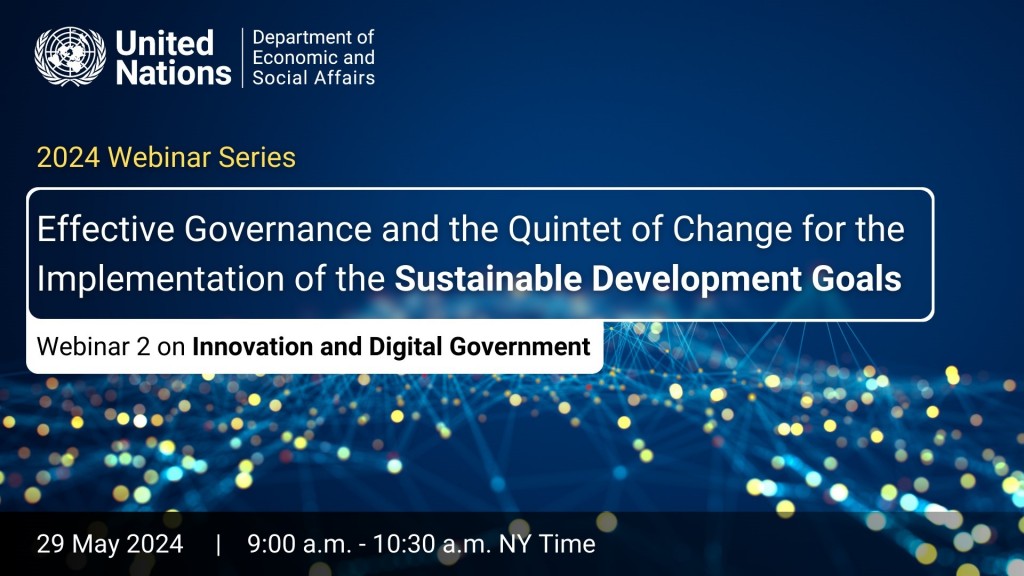Background
Promoting innovation and digital transformation can help countries deliver services in a more effective and inclusive way, particularly to underserved, rural, physically disconnected, and otherwise marginalized segments of society. Implementing effective, accountable, and inclusive governance and institutions, and pursuing opportunities for innovation and digital transformation could build resilience through progressive structural changes and promote the implementation of the Sustainable Development Goals (SDGs).
Digital government and frontier technologies are bringing great opportunities for SDG implementation while posing risks of further digital and development divides within countries and between developing and developed countries. Frontier technologies are transforming traditional governance models. This requires redefining the roles of the public and private sectors in ensuring that technologies are used to improve public service delivery and the well-being of all.
Digital government transformation and innovations are not merely about technologies. They refer to a process of fundamental change requiring a holistic approach that puts people first and revolves around their needs, including the furthest left behind, while mitigating risks associated with the use of technologies. Change should be value-driven and institutionalized across all government levels and society with the aim of supporting the implementation of the SDGs. It also entails fundamental changes in the mindsets of public servants and people across society. Embracing a digital mindset and digital literacy (to be aware of opportunities and risks of the new digital world) is essential for the public sector.
Promoting innovation, digital government and changing mindsets needs to be a strategic priority. The goal is to engender innovative, technology-driven economies and societies. Institutional arrangements should also be strengthened to support closer collaboration among policymakers, technology producers, innovators, knowledge management platforms, universities, research institutions, private firms, and consumers.
This webinar will discuss some of the lessons learned to create a supportive environment for innovation and digital transformation in the public sector. The role of emerging technologies, such as Artificial Intelligence (AI), will be examined. Challenges and opportunities will also be discussed.
Objectives
- To explore approaches to fostering innovation and digitalization in the public sector context.
- To explore conditions for successful innovation in digital transformation in the age of AI.
- To better understand the public sector skills required for promoting innovation and digitalization in the public sector.
Guiding questions
1. What are some of the good practices around digital government and innovation in public service delivery? What type of strategies have been more successful?
2. What are some of the key mindsets needed for the public sector to adopt emerging technologies such as AI for enhanced public service delivery? What are some of the best practices?
3. What role do training institutions and human resource departments play in equipping the public sector to navigate the challenges of digitalization?
Presentations will be based on the Curriculum on Governance for the SDGs developed by UN DESA/DPIDG. The 11 principles of effective governance for sustainable development, which were developed by the UN Committee of Experts on Public Administration and endorsed by the UN Economic and Social Council in 2018, will also be highlighted. Each webinar will feature expert presentations, case studies, and real-world examples, providing participants with practical insights and actionable strategies.
Webinar coordinators:
Cristina Rodriguez-Acosta
Interregional Advisor
DPIDG/UN DESA
Cristina.rodriguezacosta@un.org
Nosipho Dhladhla
Information Management Officer
DPIDG/UN DESA
dhladhla@un.org





